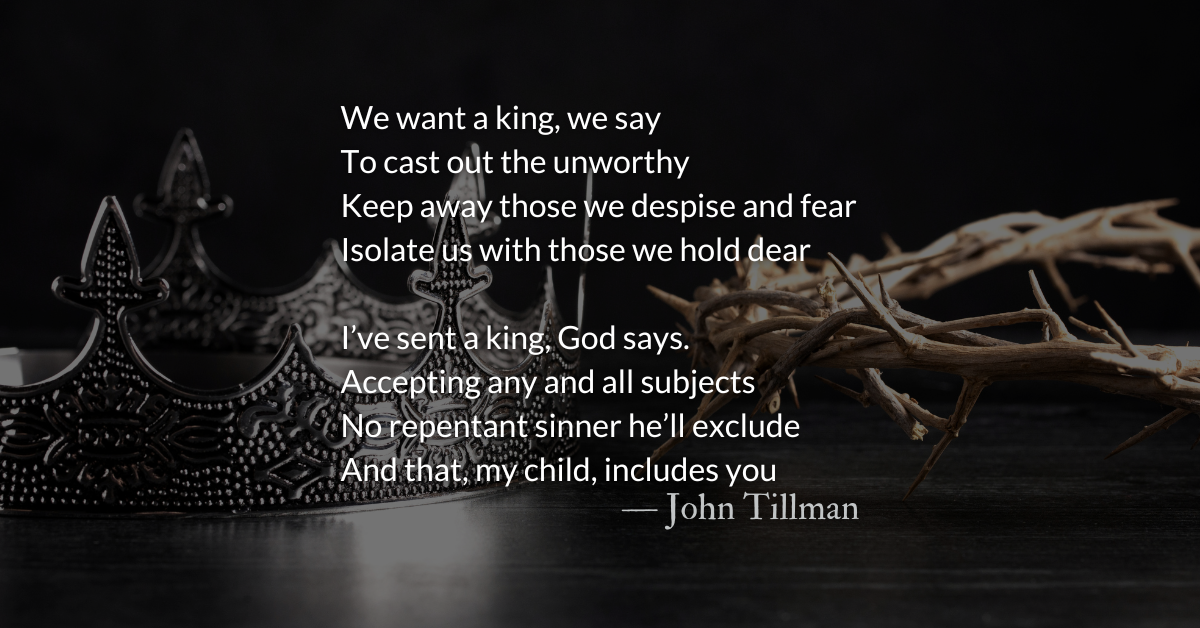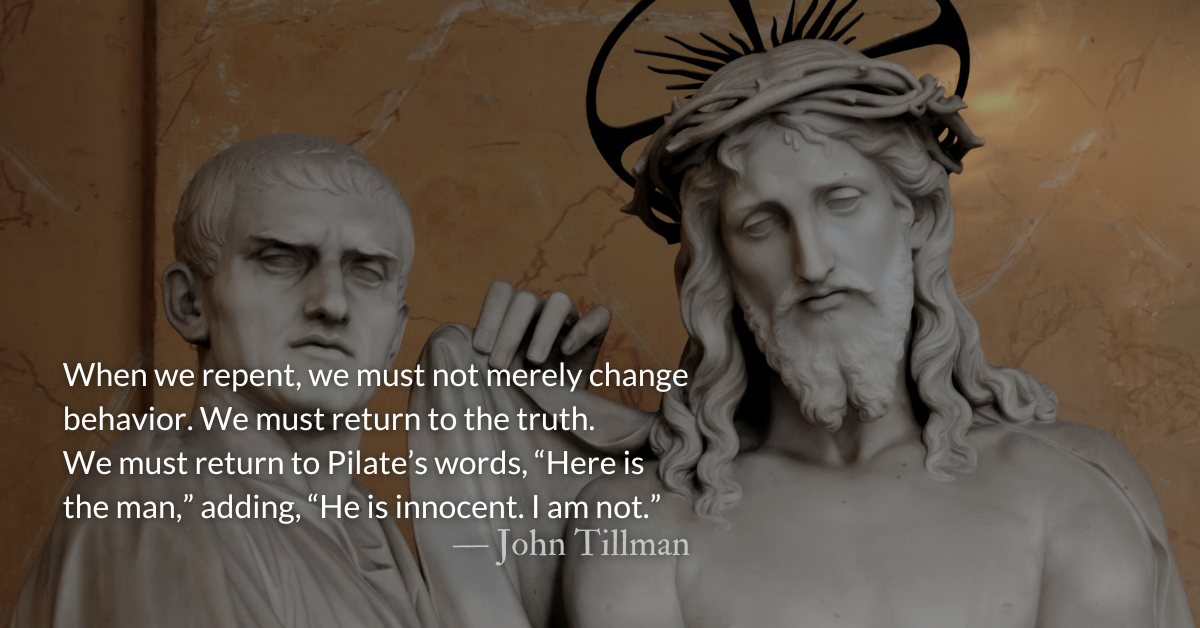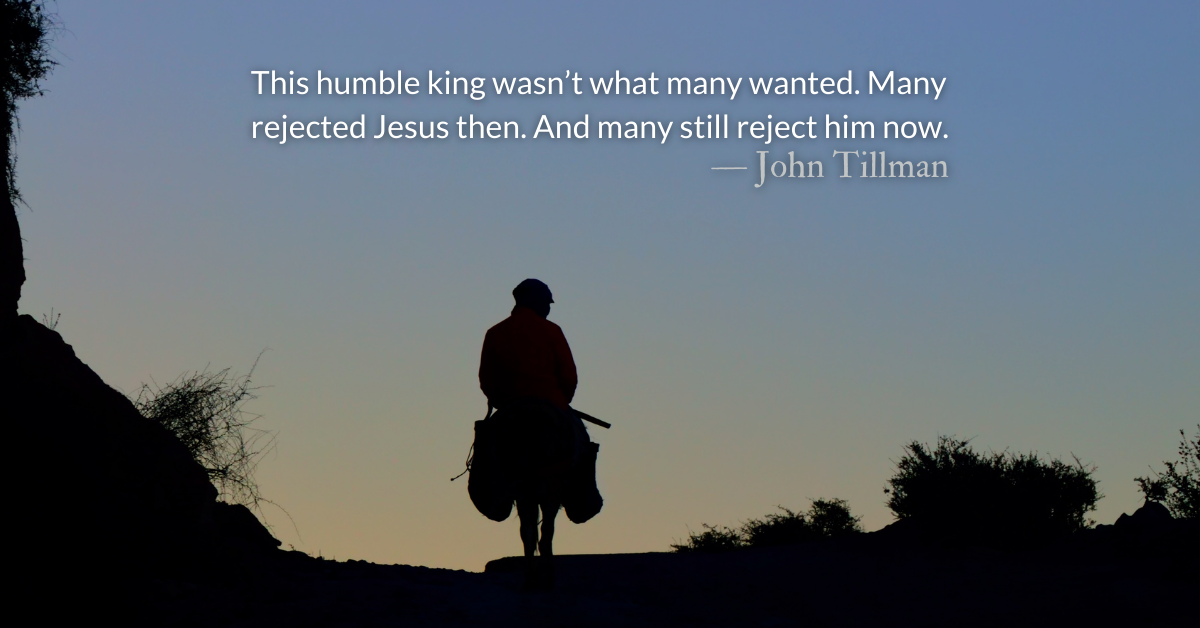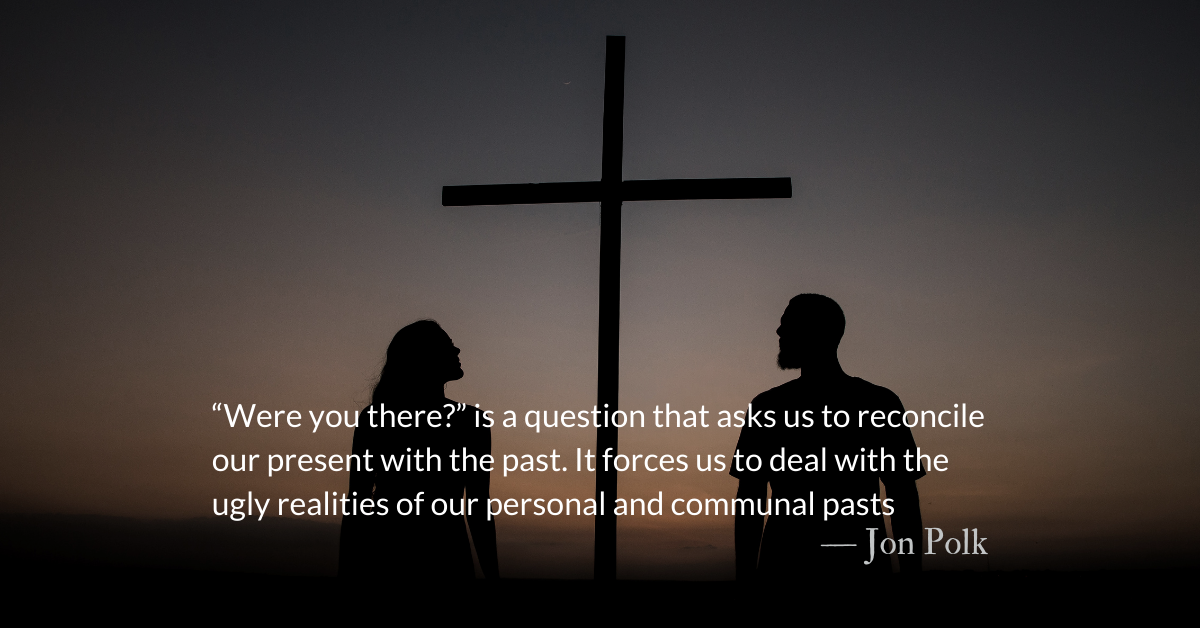Scripture Focus: John 19.15
15 But they shouted, “Take him away! Take him away! Crucify him!” “Shall I crucify your king?” Pilate asked. “We have no king but Caesar,” the chief priests answered.
Zechariah 9.9
9 Rejoice greatly, Daughter Zion!
Shout, Daughter Jerusalem!
See, your king comes to you,
righteous and victorious,
lowly and riding on a donkey,
on a colt, the foal of a donkey.
1 Samuel 8.6-7
6 But when they said, “Give us a king to lead us,” this displeased Samuel; so he prayed to the Lord. 7 And the Lord told him: “Listen to all that the people are saying to you; it is not you they have rejected, but they have rejected me as their king.
Reflection: The King We Want
By John Tillman
All the gospel writers include the detail from Zechariah’s vision of a coming king riding on a donkey. John and Matthew quote Zechariah 9.9 to point out Jesus’ fulfillment of this prophecy. However, this humble king wasn’t what many wanted. Many rejected Jesus then. And many still reject him now.
The King We Want
We want a king, we say
A king like other nations
With Solomon’s glitz and glamor
With Goliath’s sword and armor
I’ve sent a king, God says
Unlike any you’ve seen
Son of the Giant Killer
Yet, rejected as your ruler
We want a king, we say
Exalted and victorious
We’ll hear his saber rattle
We’ll follow him to battle
I’ve sent a king, God says
A king not of this realm
Your lust for worldly power
Shows you mistake the hour
We want a king, we say
To make our city great
To make for ourselves a name
To not be scattered from this plain
I’ve sent a king, God says
You had no eyes to see him
He wept over your city
That the outcasts gained no pity
We want a king, we say
We’ll even take a bad one
Let him speak like a serpent coiled
Long as we can share the spoils
I’ve sent a king, God says
You had no ears to hear him
Of sin’s sting you must repent
Then my King will crush the serpent
We want a king, we say
A conqueror, triumphant
Crush our enemies who slight us
Crush the governments above us
I’ve sent a king, God says
He rode in on a donkey
My servants prophesied him
You rebels crucified him
We want a king, we say
To cast out the unworthy
Keep away those we despise and fear
Isolate us with those we hold dear
I’ve sent a king, God says.
Accepting any and all subjects
No repentant sinner he’ll exclude
And that, my child, includes you
Divine Hours Prayer: The Refrain for the Morning Lessons
Righteousness shall go before him, and peace shall be a pathway for his feet. — Psalm 85.13
– From The Divine Hours: Prayers for Summertime by Phyllis Tickle.
Today’s Readings
Job 20 (Listen 2:52)
John 19 (Listen 6:23)
This Weekend’s Readings
Job 21 (Listen 3:05), John 20 (Listen 4:17)
Job 22 (Listen 2:54), John 21 (Listen 3:58)
Read more about Ecce Homo
Pilate presents Jesus as king and he is rejected. Not just by the Jews. By the world. This moment is the essence of all sin.
Read more about Pause To Read
Check out today’s new podcast episode: Defining Moment. How many have you listened to? Let us know what you think. Share and rate the episodes to spread the word.










